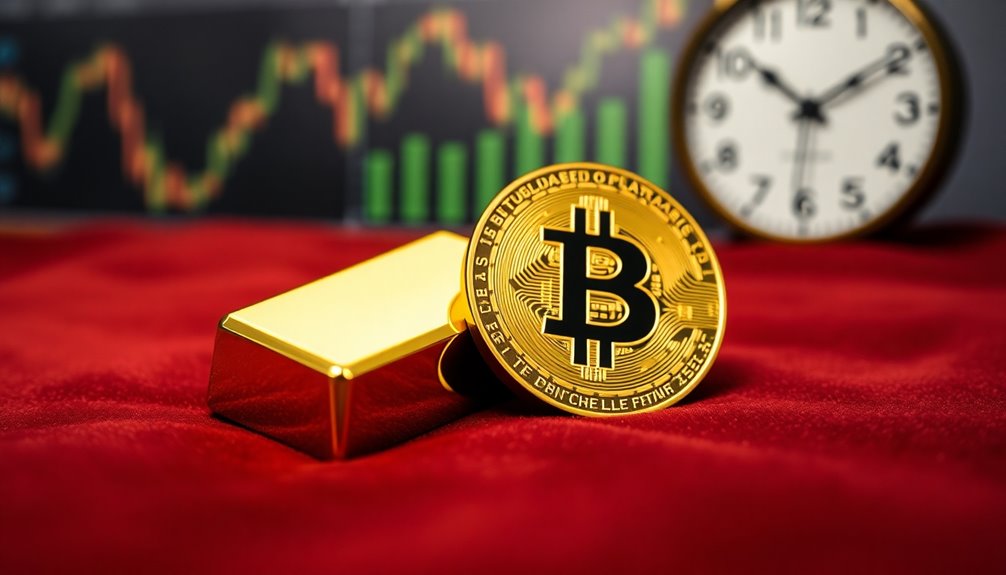As you consider your investment strategy for 2025, the debate between Bitcoin and gold as safe havens becomes increasingly relevant. Gold offers a long-standing track record of stability, while Bitcoin presents intriguing growth potential amid its volatility. Each asset has its own set of advantages and challenges. How do you decide which one aligns with your financial goals? The answer might not be as straightforward as it seems.

When considering safe-haven assets, you might find yourself torn between the age-old allure of gold and the modern appeal of Bitcoin. Gold's long history as a reliable store of value spans thousands of years, providing stability during economic crises. Its predictable performance and lower volatility make it an attractive choice for conservative investors who prioritize safety.
In contrast, Bitcoin, which emerged in 2009, positions itself as "digital gold." Its capped supply and decentralized nature have garnered attention, but its high volatility can be daunting. Gold's historical perspective as a safe haven asset reinforces its position as a trusted investment during turbulent times.
Gold's proven track record as an inflation hedge is another point in its favor. Throughout history, it has consistently performed well during periods of inflation and financial uncertainty. When inflation rises, gold often shines, maintaining its value.
Bitcoin, while increasingly seen as a potential hedge against inflation due to its limited supply, behaves more like a risk asset. You might appreciate Bitcoin's growth potential, but remember that its value can swing dramatically.
Liquidity is another important factor to consider. Gold is highly liquid and globally accepted, allowing for easy conversion to cash or trade. While Bitcoin's liquidity is improving thanks to technological advancements and a maturing regulatory landscape, it's still less liquid than gold.
You'll want to keep in mind that gold operates within a well-established regulatory framework, whereas Bitcoin's regulations are still evolving. This can create uncertainties that you may find unsettling.
Accessibility plays a role too. Gold is easily accessible to a wide range of investors, while Bitcoin requires a certain level of technological understanding. If you're new to cryptocurrency, the learning curve might feel steep.
Additionally, security concerns about Bitcoin, such as the risk of hacking, contrast sharply with gold's well-established authenticity.
Looking ahead, gold's enduring appeal as a safe-haven asset seems secure, thanks to its stability and physical presence. However, Bitcoin's role is evolving rapidly, with increasing institutional interest and the potential for technological advancements.
Combining both assets in your portfolio could offer diversification benefits, balancing the risk and reward. As you contemplate your investment strategy for 2025, weigh the historical reliability of gold against Bitcoin's potential for growth, and consider how each might fit into your financial goals.









